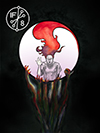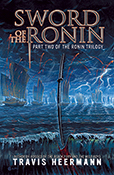A guest post by Ann Cummins.
Well, that’s not quite right. They were New Yorkers just beginning to mutate. One was a writer, the other a tailor. The bar was crowded. It was karaoke night.
The writer was miffed. Had a bad week. It wasn’t his writing. His writing was great. First novel done and sold, review copies out; there would be royalties, he was sure.
But he’d spent the week trying to track down some fool tailor, who was never in his shop. The writer was getting married. This tailor was supposed to be the best, and the writer wanted the guy to sew him a wedding shirt. But the dang tailor was MIA, which made the writer’s skin crawl. He liked people to be where they said they’d be when they were supposed to be there.
The tailor, his skin was crawling, too. Some sub-species writer had flamed him on Yelp. For ever-so-long, the tailor had enjoyed a 5-star rating. “I’ll pan him on Amazon,” the tailor groused. “Just wait ‘til his book comes out.”
The writer’s day was getting worse. There were so many people between him and the microphone. He needed to vent. He wanted an audience. In frustration, he shouted to the room in general: “I’ll yelp him again. I’ll give five-stars to his competitors.”
“Who?” the room shouted back. So the writer told the story, and the tailor, he listened.
Blood in his eye, he could barely see the abomination that was calling himself a writer. “You!” he shouted.
The writer stared in horror at the needle-fingered couturier.
Both lunged. One skittered spider-like, the other bull-dogged: Over shoulders and under legs, they tore through the crowd in a dead heat toward the stage, each desperate to get to that microphone first.
(For details on the non-fictional story, go to: http://www.dailyfreeman.com/general-news/20130820/writers-new-woe-revenge-e-reviews)
*****
I published a short story collection, Red Ant House, with Houghton Mifflin in 2003. I was lucky. They assigned me a publicist, who sent out many review copies, followed up, and as a result my book was widely reviewed.
It was my first book, and I didn’t have much name recognition. My editor suggested I start reviewing books. Get my name out there. So I contacted the wonderful Oscar Villalon, who, at the time, was Book Review Editor for the San Francisco Chronicle. Oscar gave me a shot. Actually, he assigned me a 250-word review for a 600+ page tedious historical novel. A challenge? Yes. But I guess I did OK, because for several years after that, Oscar assigned me books. I graduated to the 800-word review.
But then, the congenial world of writing and book reviewing morphed into what it is now: the free-for-all electronic media driven Tower of Babble (not that that’s a bad thing, but it’s definitely a new frontier). Newspaper sales dwindled. Editors slashed or eliminated their book review sections.
In 2007, I hit the trail, promoting my new book, Yellowcake. The scene on the street was depressing: vacant buildings where bookstores used to be; conferences where bug-eyed writers paid for a ten-minute shot at sweet-talking an agent. And where were all the readers? I, and many writers I know, gave readings to empty rooms in a few holdout bookstores. The only writers getting any attention were showboats emboldened to camp it up and draw blood if necessary. Whatever it took to get an audience.
I decided to go home: To do what I could to promote writing and reading in a civil environment at the grassroots level. I contacted my local NPR station in Flagstaff, Arizona, KNAU. We launched Southwest Book Reviews. I aimed to review books by small regional publishers that might not get the wide media attention big bucks publishers could buy.
So how does a writer get reviewed these days? My advice: Read. Work at the grassroots level to promote reading. Contact favorite magazines, radio stations, websites. You’d be surprised how many will say yes to a well-written review about books by favorite and new authors.
What goes around comes around. Writers who read and write intelligently about books inspire readers. Readers, we hope, get excited about books. We all fan the dying embers, and everybody wins.
 Ann Cummins is the author of a short story collection, Red Ant House (Mariner, 2003) and a novel, Yellowcake (Houghton Mifflin, 2007), a San Francisco Chronicle notable book and Best of Kirkus. Her stories have appeared in The New Yorker, McSweeney’s, and elsewhere and have been anthologized in a variety of series including The Best American Short Stories, The Prentice Hall Anthology of Women’s Literature, Best of McSweeney’s, and The Anchor Book of New American Short Stories. A 2002 recipient of a Lannan Foundation Literary Fellowship, she’s a graduate of Johns Hopkins University and the University of Arizona writing programs. She’s on the fiction faculty at Northern Arizona University and the Queens University low-residency program in Charlotte, North Carolina.
Ann Cummins is the author of a short story collection, Red Ant House (Mariner, 2003) and a novel, Yellowcake (Houghton Mifflin, 2007), a San Francisco Chronicle notable book and Best of Kirkus. Her stories have appeared in The New Yorker, McSweeney’s, and elsewhere and have been anthologized in a variety of series including The Best American Short Stories, The Prentice Hall Anthology of Women’s Literature, Best of McSweeney’s, and The Anchor Book of New American Short Stories. A 2002 recipient of a Lannan Foundation Literary Fellowship, she’s a graduate of Johns Hopkins University and the University of Arizona writing programs. She’s on the fiction faculty at Northern Arizona University and the Queens University low-residency program in Charlotte, North Carolina.


 Heidi Berthiaume Bio: Heidi Berthiaume has a last name that is easier to say (berth-e-um) than spell. She writes books, has had a few short stories published, consults on Kickstarter projects and regarding information architecture for websites and applications. Any remaining time is spent on some kind of project such as creating fabric art, editing fan music videos, or spreading the word about her favorite authors and artists. Learn more about Heidi’s stuff at
Heidi Berthiaume Bio: Heidi Berthiaume has a last name that is easier to say (berth-e-um) than spell. She writes books, has had a few short stories published, consults on Kickstarter projects and regarding information architecture for websites and applications. Any remaining time is spent on some kind of project such as creating fabric art, editing fan music videos, or spreading the word about her favorite authors and artists. Learn more about Heidi’s stuff at  Victoria Morris Bio: Victoria lives on the edge of a mysty magical forest in the Pacific Northwest with one husband, two daughters, a big white dog and one huge resident bald eagle that likes to circle over her house when she brings in the groceries. A lifelong artist and not quite as long writer, Victoria is building a universe inside her head that has taken form in a six book fantasy series, with a middle grade trilogy on the side. While illustrating the world and all its characters is always on her mind, she draws portraits in her spare time to relax. Find out more
Victoria Morris Bio: Victoria lives on the edge of a mysty magical forest in the Pacific Northwest with one husband, two daughters, a big white dog and one huge resident bald eagle that likes to circle over her house when she brings in the groceries. A lifelong artist and not quite as long writer, Victoria is building a universe inside her head that has taken form in a six book fantasy series, with a middle grade trilogy on the side. While illustrating the world and all its characters is always on her mind, she draws portraits in her spare time to relax. Find out more 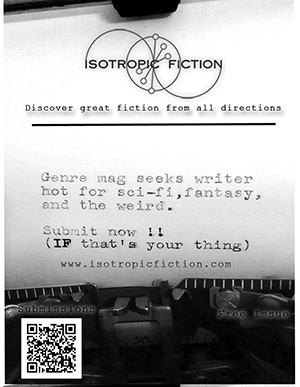 Let’s be frank. Writers are sympathetic characters, editors are not. Writers toil in romanticized isolation but get invited to the coolest parties. They create and share every moment of joy and sorrow experienced by not just one character, but by an entire world of their creation. They brainstorm and draft, rewrite and polish, and then one day they mass submit that perfect story to the editorial altars.
Let’s be frank. Writers are sympathetic characters, editors are not. Writers toil in romanticized isolation but get invited to the coolest parties. They create and share every moment of joy and sorrow experienced by not just one character, but by an entire world of their creation. They brainstorm and draft, rewrite and polish, and then one day they mass submit that perfect story to the editorial altars.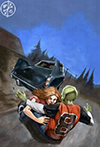 As a writer, I’ve worked with a variety of editors, good and bad, from newspapers and books to literary and genre magazines. And as an editor, I’ve worked with sci-fi writers and romance novelists, journalists, and poets. There are countless essays about what editors are looking for, what their major peeves are, and how you can improve or kill your chances of getting published. Some of my favorite can be found right here on The Fictorians. After you’re done reading my essay, make it a point to check out Joshua Essoe’s “
As a writer, I’ve worked with a variety of editors, good and bad, from newspapers and books to literary and genre magazines. And as an editor, I’ve worked with sci-fi writers and romance novelists, journalists, and poets. There are countless essays about what editors are looking for, what their major peeves are, and how you can improve or kill your chances of getting published. Some of my favorite can be found right here on The Fictorians. After you’re done reading my essay, make it a point to check out Joshua Essoe’s “ If you’re a writer reading this, think about the last time you asked your friend, husband, wife, or dog to read the latest draft of your story. Did you notice how their eyes darted toward the door in a desperate attempt to escape? Did they sigh? Did they take your pages only to not have read them a month later? Did they say it was nice? Editors will never treat you like that. This bears repeating: editors want to read your work. You are their raison d’être.
If you’re a writer reading this, think about the last time you asked your friend, husband, wife, or dog to read the latest draft of your story. Did you notice how their eyes darted toward the door in a desperate attempt to escape? Did they sigh? Did they take your pages only to not have read them a month later? Did they say it was nice? Editors will never treat you like that. This bears repeating: editors want to read your work. You are their raison d’être.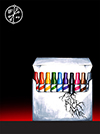 When a form letter goes out, the work that came in most likely was riddled with grammatical and spelling errors, displayed a total disregard of the publication’s submission guidelines, and/or wasn’t even a complete story. The form letter allows the editor to exemplify a level of professionalism with which the writer may not have treated his or her work.
When a form letter goes out, the work that came in most likely was riddled with grammatical and spelling errors, displayed a total disregard of the publication’s submission guidelines, and/or wasn’t even a complete story. The form letter allows the editor to exemplify a level of professionalism with which the writer may not have treated his or her work.